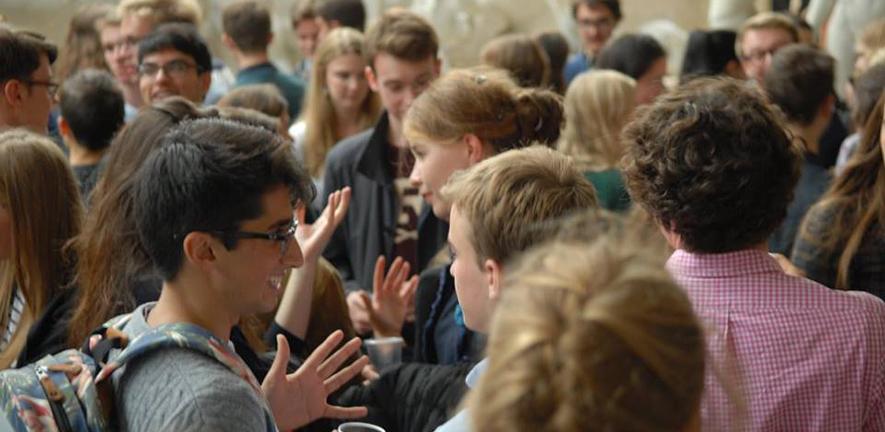
ACADEMIC YEAR 2024/25
LAST UPDATE: 28 June 2024
TEACHING
All teaching will be delivered in person and all students are expected to attend lectures/classes as normal.
Prelim, Part 1A (except Classics Now), Part 1B and Part II lectures will normally be recorded, but such recordings will normally be made available only to students in possession of a Student Support Document (SSD) via a dedicated section of Moodle.
Classes will not normally be recorded.
As far as the recording of lectures is concerned, it is important to note that:
- lecturers will not be responsible for technical failure of lecture capture equipment, and are not obligated to replace or repeat any recording/streaming which fails;
- lecturers are not required to make recordings and some may decide not to do so, for example in order to encourage a more spontaneous and interactive lecture.
EXAMINATIONS
Marking and classing guidelines are available HERE.
The following arrangements will be in place:
Prelim
- Papers 1, 2A and 2B (language examinations) will be held as 3-hour in-person examinations in the examination hall.
- Paper 3 (Classical Topics) will be held as a 2-hour in-person examination in the examination hall.
- Paper 4 (Literary Essay) will be examined by submitted essay.
Part IA
- Papers 1, 2A, 2B, 3, 4A, 4B, 5, 7 and 8 will be held as 3-hour in-person examinations in the examination hall.
- Paper 6 (Classical Essays) will be examined by submitted essays.
Part IB
- Schedule A, B and H papers (language examinations) will be held as 3-hour in-person examinations in the examination hall.
- Schedule C, D and E papers will be held as 2-hour in-person examinations in the examination hall.
- Schedule F papers will be examined by submitted essay.
Part II
- With the exception of X3, which will be examined by submitted essays, all Part II papers will be held as 3-hour in-person examinations in the examination hall.
OVERALL DEGREE CLASSIFICATION
The undergraduate degree is known as the Classical Tripos. The Tripos is divided into four parts: Prelim to Part IA, Part IA, Part IB and Part II. The links below will take you to information about each part of the Tripos:
The scheme of weighting used to calculate the overall degree classification (ODC) is 0:0:100. The ODC will be based entirely (100%) on Part II results, and the ODC Final Class List will match the Part II Class List. This does not apply to candidates who have matriculated before 2020.
You can find more details about the structure of the course in the the University Statutes and Ordinances.
OTHER INFORMATION
A range of further information, such as lecture handouts, past exam papers, travel forms, Student-Staff Joint Committee minutes can be found on the Faculty’s Moodle site (an online resource system).
The Lecture Timetable outlines all the classics lectures for the coming year, in a downloadable PDF.
The Undergraduate Handbook contains useful information about studying classics in Cambridge.
You can also find information about transferable skills, plagiarism, and important dates in the Faculty’s year (Exam Dates and Term Dates).
The University International Student Team provides specialist support to students who come to study at Cambridge from outside the UK.
Finally, it may not be too early to think about what to do after your degree.
